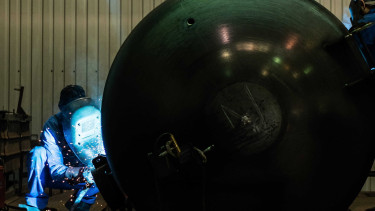Hungary passes bill that strips Academy of Sciences of its research network
László Palkovics, Minister of Innovation and Technology, the person who submitted the bill, said the goal of the planned changes is to boost Hungary’s competitiveness, create a more efficient operation and a performance-based distribution of resources.The bill gives the government control of a vast network of research institutes currently run by the two-century old Hungarian Academy of Sciences (MTA). Their research funding will be allocated by the newly established Eötvös Loránd Research Network, the board members of which will be appointed by Prime Minister Viktor Orbán.
In order for its operation this “new" network would absorb the Academy’s properties, part of its central administration and its winning grants and scholarships.
Palkovics stressed that the new body is not controlled or directed by the government.
Parliament has also brought to live the National Scientific Policy Council that is accountable exclusively to Orbán and supervises the operation of the National Research, Development and Innovation Office’s (NKFI) fund, and it formulates views on the cabinet’s R&D&I activity.
The MTA said the following in a statement.
The government justified its move, which would transform the entire system of Hungarian scientific life, by saying that the bill would pave the way for the framework of a new science and innovation policy. Furthermore, it would also contribute to the renewal of the RDI system and lay the foundations for the funding of this new innovation and science policy as well as for exploratory and applied research.
However, the Hungarian scientific community has made it abundantly clear that it is against the government’s plan relating to the Academy. The reasons for this are simple: the bill stands in contrast with basic European research funding principles and seriously endangers academic freedom.
Although the Academy’s public body does not take part in the direct management of research, the several-decade-long cooperation has resulted in a number of synergies in the following fields:
- (i) international relations;
- (ii) popularizing science;
- (iii) quality assurance of research projects;
- (iv) organization of national projects; and what is more,
- (v) management of crises (such as the red sludge catastrophe).
The MTA said that over the past year, no detailed reasons have been given to the Academy that would justify its separation from the research network. The justification in the proposal consisted of some general sentences in half a page, which emphasize the importance of innovative performance. The ministry exercised pressure on the MTA by withholding a part of the basic budget of the Academy, which is guaranteed by law.
About the MTA and its research network
The MTA operates a research network that is financed by the central state budget, employing almost 5,000 researchers and auxiliary staff.Previously, László Lovász, President of the Hungarian Academy of Sciences, has turned in a letter to MPs regarding the bill. His key statements were the following:
- The Academy operates transparently, submits a report to the government annually and to parliament biennially. The detailed scientific reports are available to anyone on the MTA’s homepage.
- The MTA operates 10 research centres, 5 independent research institutes, 96 research groups co-financed by the Academy at universities and public collections, as well as 93 Lendület (Momentum) research groups.
- The Academy is managed on the principle of self-governance and board governance. The 15-strong Council of Research Institutes helps and evaluates the work of the research network, and can also pass decisions on certain topics.
- The government delegates three members of the council with counselling rights “out of the senior colleagues of ministers responsible for education, RDI, the development of economy competitiveness policies, who can promote the effective management of the research network owing to their practice and experience in economy, management, research, management of academic affairs and public administration"
- The research sites that operate with the above guarantees perform excellently in their own fields of science compared to other scientific organizations worldwide.
- Several researchers’ work is outstanding both in Europe and in the world.
- Independent bodies regularly evaluate the professional performance of the Academy, based on international standards. Both the Palace of the Academy and the research sites are open to all those interested in science. The Academy communicates high standard values, and our programs to popularize science are also open for the wider public.
The International Science Council (ISC) warned the government’s plans to overhaul the science system “not only represent a threat to scientific freedom, but they would also hamper scientific progress, innovation, and Hungary’s standing in the global scientific community. Scientific capability and human capital take many years to accumulate, but can be lost very quickly, and can be difficult to replace if lost."
Here’s a list of articles about the developments regarding the MTA.








